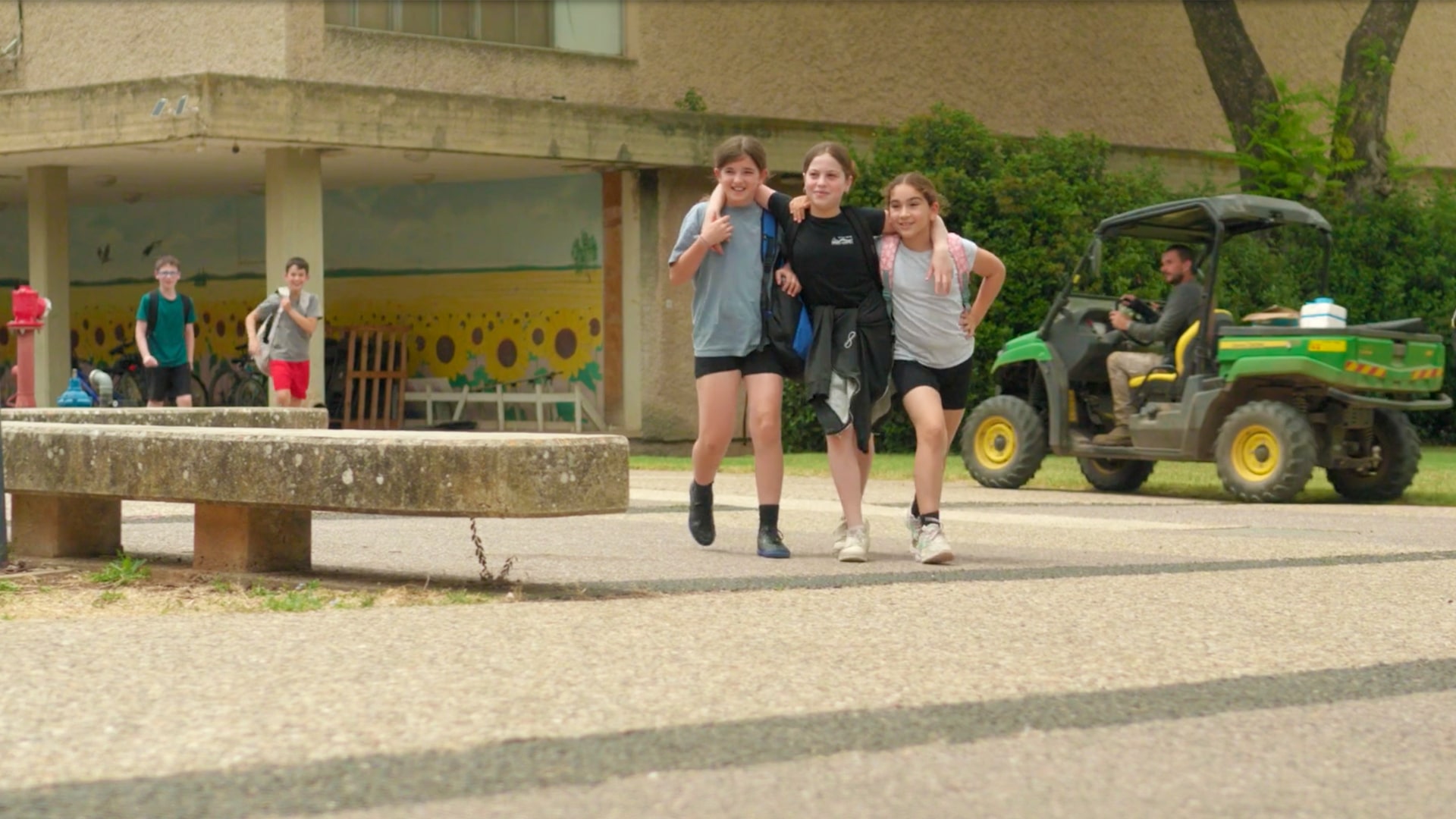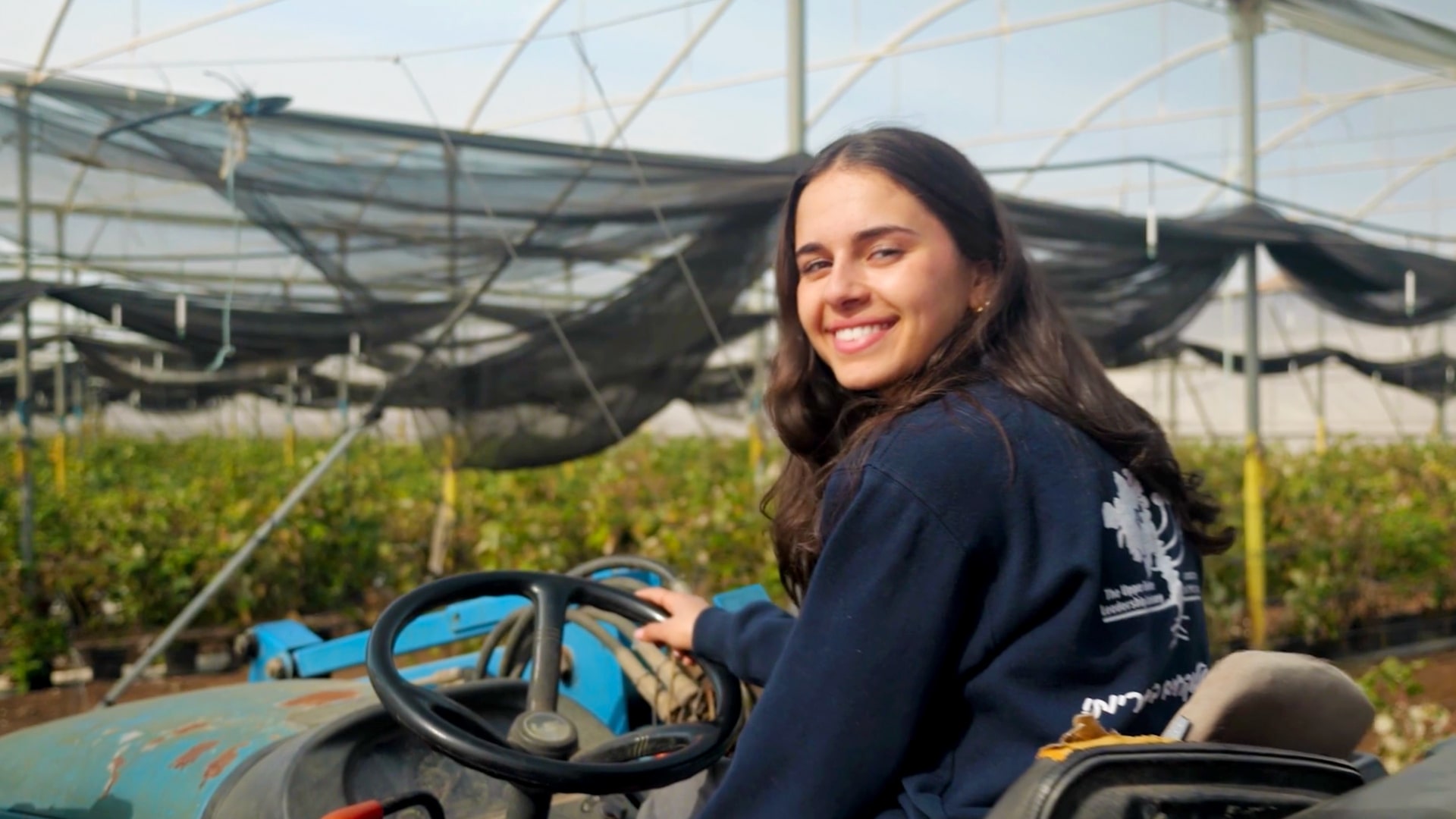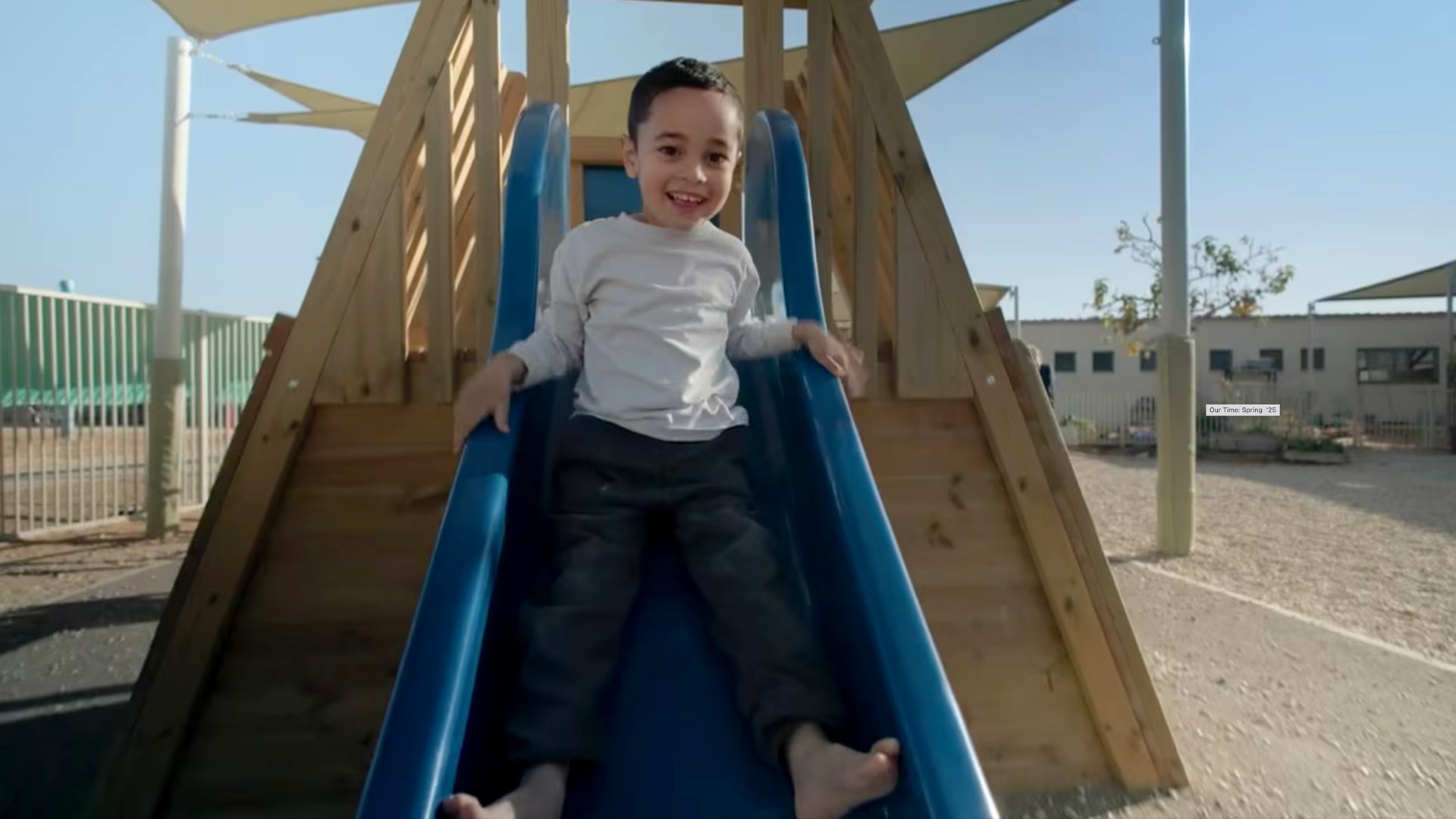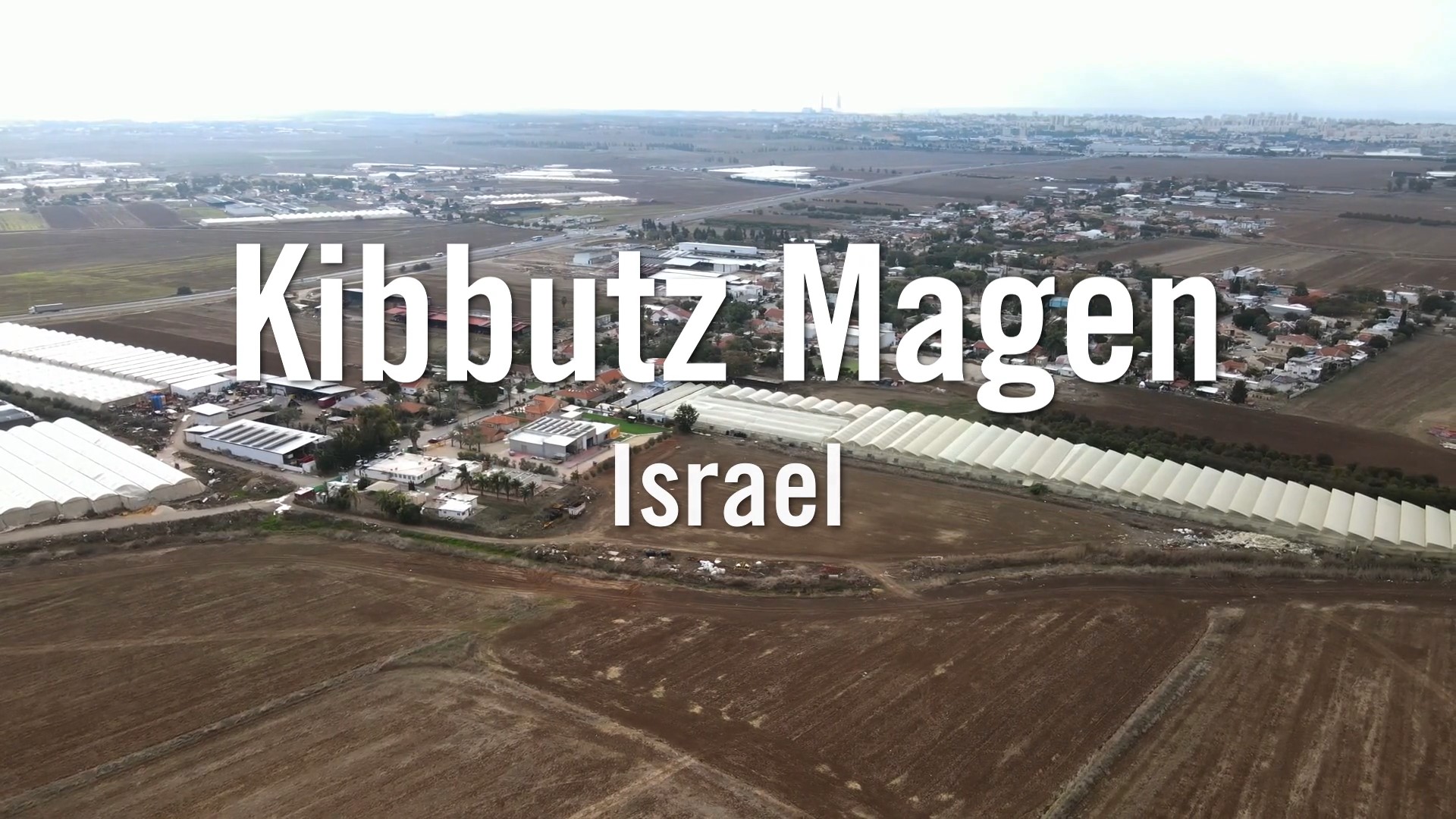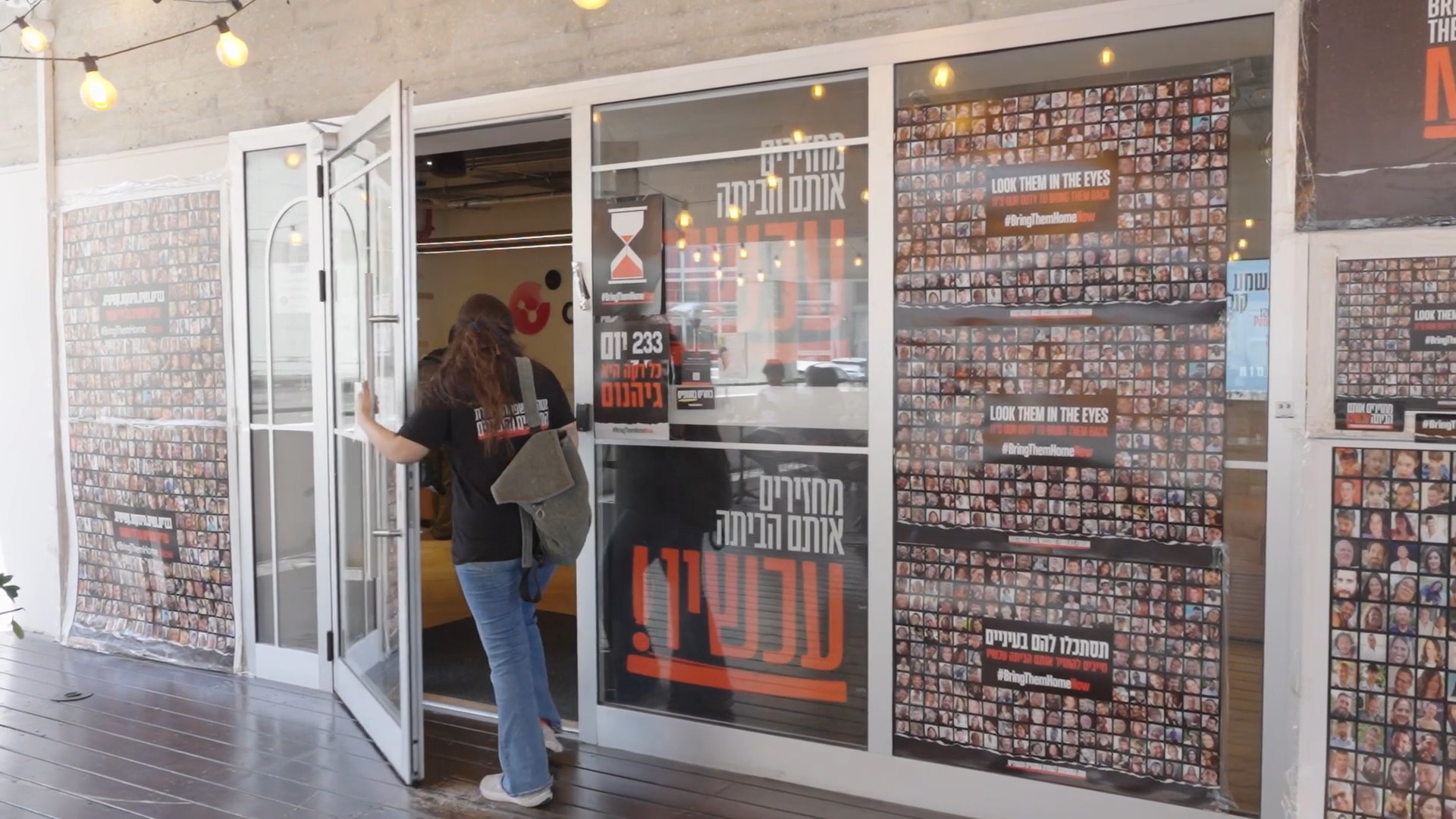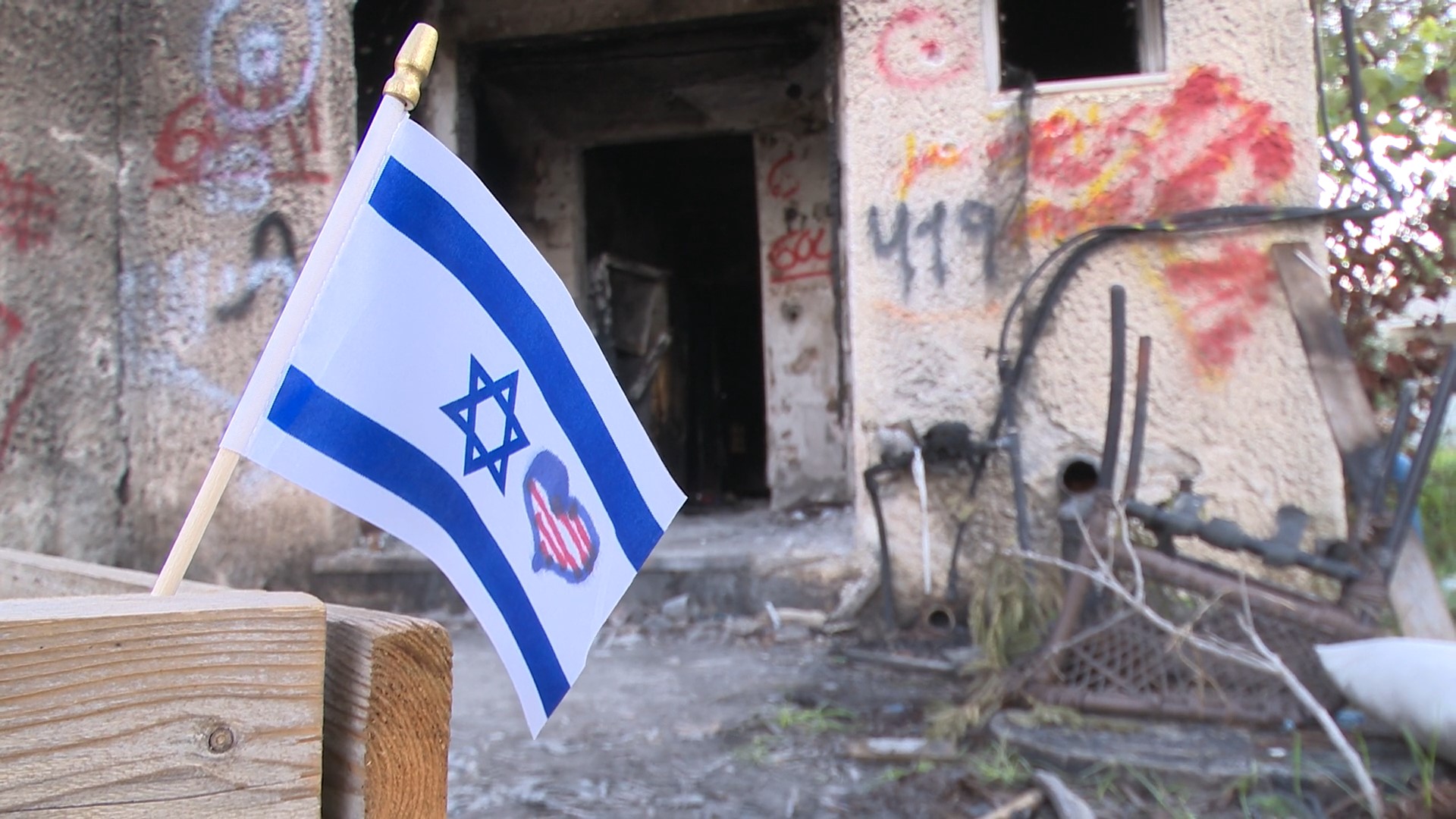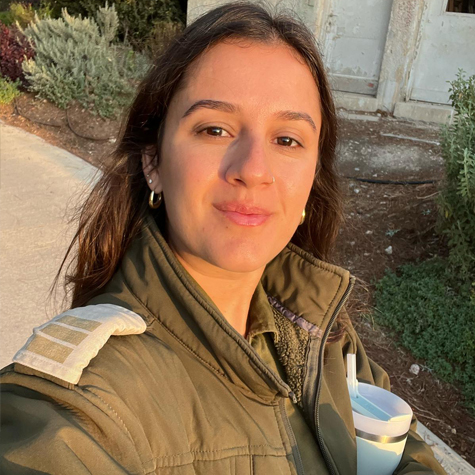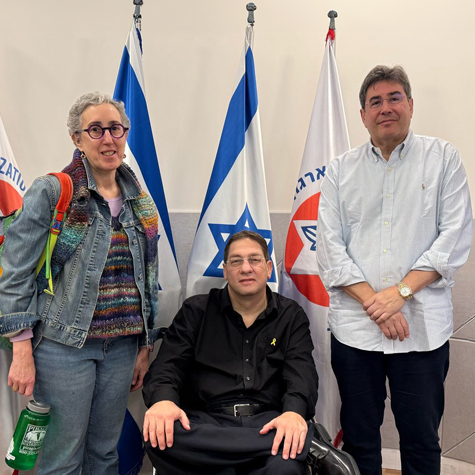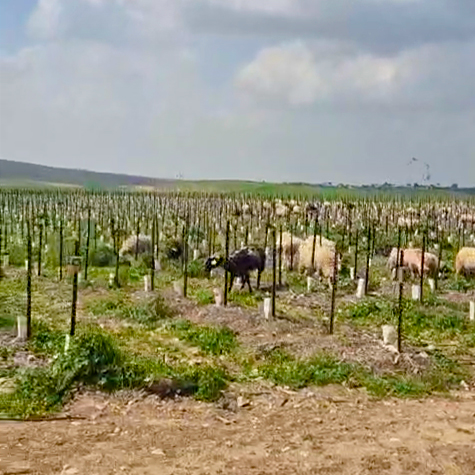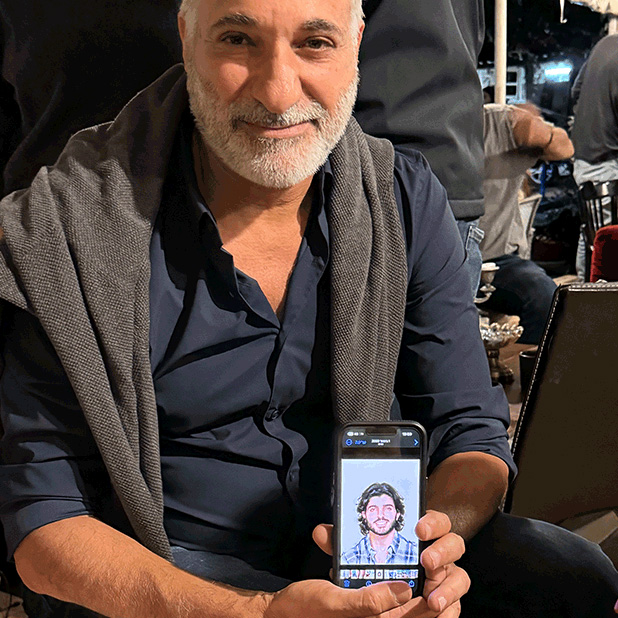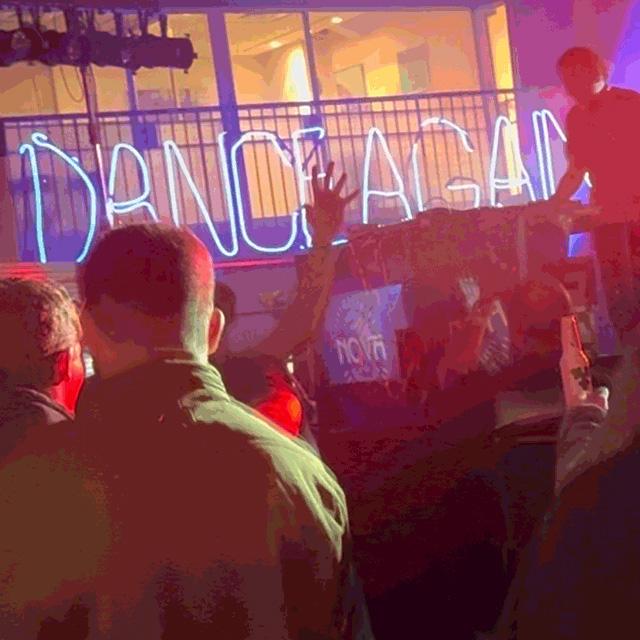“I never imagined that at 32 I'd be serving in the reserves, and my eyes would see what I saw.”
On October 7, 2023, 22-year-old Nitzan Malka Levine ran to Southern Command headquarters, where she served in the reserves as a communications officer, responsible for relaying information from the Gaza field to command.
At headquarters, they heard everything that was happening on the battlefield — from the number of wounded to the number of casualties — with the ability to do no more than collect vital information. The sense of helplessness was overwhelming, especially knowing that the voices on the line were someone’s entire world.
The pressure to hold it together was constant. “All tools were valid, except falling apart — that wasn't an option,” Nitzan explains.
Hila Marer, 32, from Tel Aviv, was chosen to serve as a commander in Nitzanim.
Then, at the start of the war, when a new mobility unit was established on the northern border, Hila was asked to join a unit tasked with supplying soldiers, driving through terrain unsuitable for vehicles, and evacuating the wounded or fallen.
“I never imagined that at 32 I'd be serving in the reserves, and my eyes would see what I saw.”
What hit hardest was the emotional disconnection from her everyday life when she returned.
“I felt like a stranger to myself and to my family and friends. No one understood what I experienced during my service. It's a very isolating feeling.”
Nitzan felt it too.
"When I was in the reserves, I was in a chaotic and noisy world, but I also knew I was in control there. Then returning to my studies felt so disconnected — I felt like I was in another dimension.”
What Nitzan and Hila share is how they found each other — through the work of Ohavei Asaf (Those Who Love Asaf), a group created to honor Lieutenant Colonel Asaf Hamami, whose body was taken and is still held in Gaza.
Asaf commanded the Southern Unit and was among the first to grasp the scale of the attack. During the battle at Kibbutz Nirim, he declared over the radio: "We are at war."
After his death, Asaf’s family began gathering with soldiers to understand their needs and how best to support those who had dropped everything to defend their home.
When Hila and Nitzan were asked what they needed most, it became clear that women reservists were facing something different.
"Women have had to break through unbelievable glass ceilings for years in order to get to where we are today, and now when things are difficult in a way they've never been before. They're afraid to express their struggles for fear it will set them back years as fighters,” Hila and Nitzan explain.
From that realization, Project Sunflowers was born — part of Ohavei Asaf, dedicated to supporting women in reserve duty.
The program offers multiday retreats — which UJA-Federation is supporting — where women can process what they’ve experienced, without needing to explain or apologize. Women feel free to share the images and emotions that haunt them at night.
The program also helps them return to everyday life — whether it’s career, family, or studies — and improve communication with those who weren’t on the frontlines with them.
“I have friends from Sunflowers; a community of women was created who know exactly what we went through,” says Hila.
Today, 44 women — combatants, paramedics, officers, and support personnel — are part of the program, which is quickly expanding as more reservists seek this kind of support.
Beyond the retreats, Project Sunflowers continues for six months with regular group meetings and one-on-one guidance.
"So when I open my wounds, I know there will be someone to accompany me for months ahead and not leave me alone,” shares Nitzan.
"What I understood from the retreat is that each woman can take what she lacks, whether in career, personal guidance, or relationships. There's something tribal and mythological about a group of women together,” she says.
Thanks to UJA’s support, Project Sunflowers is giving women reservists a path to healing — during their service and, most importantly, when they come home.
